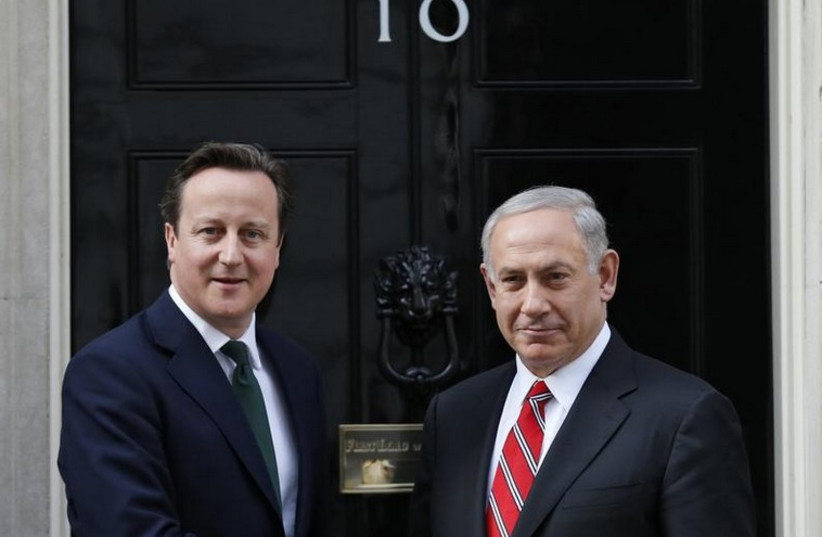British Foreign Secretary David Cameron said he told Israeli Prime Minister Benjamin Netanyahu to "start talking about the things a Palestinian state can be rather than the things it can't be," reiterating British support for a two-state solution.
The Gaza war has put renewed focus on a two-state solution to the Israeli-Palestinian conflict, still seen by many countries including the United States as the path to peace even though the negotiating process has been moribund for years.
In an interview with Lebanese broadcaster LBCI aired on Friday, Cameron said part of British policy is to say there will be a time when Britain would look to recognize a Palestinian state, including at the United Nations.
"That can't be at the start of the process. The process needs to get going. But it doesn't have to be at the end of the process," he said.
Netanyahu has voiced opposition to Palestinian sovereignty, saying he will not compromise on full Israeli security control west of Jordan and that this stands contrary to a Palestinian state.

Cameron, speaking during a visit to Lebanon as part of a regional tour, said Netanyahu had "not ruled out comprehensively a two-state solution."
Two-state solution talks should take a different approach than ones taken in the past
"My message to him was start talking about the things that a Palestinian state could be rather than the things it can't be. So that's what we should be working towards," he said.
Cameron last month said Palestinians in the West Bank and Gaza Strip must be given "the political perspective of a credible route to a Palestinian state and a new future" and this should be irreversible.
The Gaza war was triggered by Hamas fighters who stormed across the border fence into Israel on Oct. 7, killing 1,200 people and capturing 253 hostages, according to Israeli tallies.
Since then, Gaza health authorities say more than 27,000 Palestinians have been confirmed killed.
Mediators are waiting for a response from Hamas to a proposal drafted last week with Israeli and US spy chiefs and passed on by Egypt and Qatar, for the war's first extended ceasefire.
"It does seem there is a prospect of a potential pause in the fighting. It could be some days off, it could be some weeks off. I am hopeful," Cameron said in a separate interview with the Lebanese newspaper Annahar.
